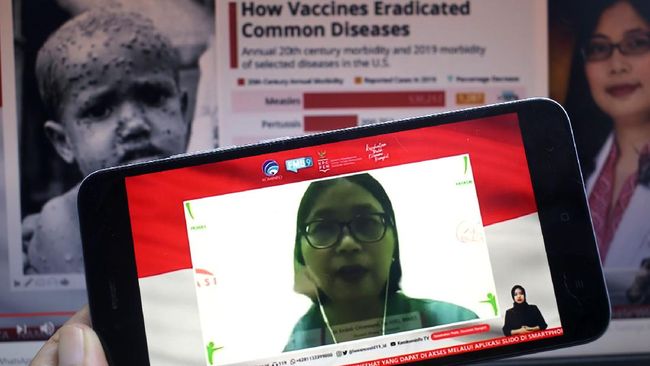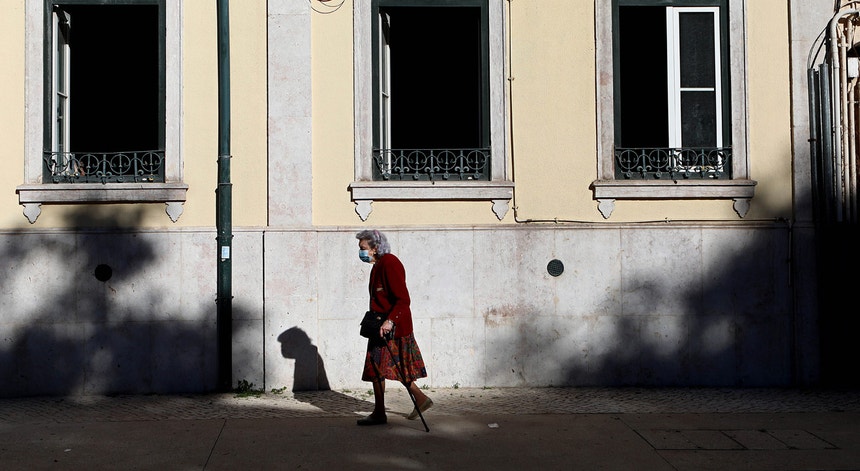JAKARTA – Health experts are constantly campaigning for vaccination or immunization to the wider community. Immunization is still one of the most powerful ways to eradicate a disease that has a bad impact on humans, especially children. Unfortunately, a small part of the community are still reluctant to be vaccinated and still believe various hoax news about it.
Pediatrician, dr. Endah Citraresmi, Sp.A (K), MARS from the Caring Parents Foundation, emphasized that vaccines are a form of community investment, for example, for parents for their children, in order to avoid disease.
“But there are so many myths circulating about vaccines. Please don’t believe it right away, confirm it to doctors or health workers. Don’t easily believe in disinformation. Vaccines make children grow well,” said Endah in a productive dialogue with the theme Active Immunization: Creating a Better Quality of Life which was held at the Media Center Committee for Handling COVID-19 and National Economic Recovery (KPCPEN), Tuesday (24/11/2020).
In principle, Endah said, vaccination will make a person immune so that he does not need to go through a sick phase when he is attacked by certain viruses or bacteria. This is certainly different from the body’s natural immunity that appears after a person is attacked by a disease. In this condition, there needs to be a phase of illness first until it is finally healed and immune.
Endah asked the public not to easily believe the bad perception of immunization. Regarding safety, for example, he ensures that all vaccine products that have been circulated are safe. The reason is that the vaccine production process goes through a long stage, starting from pre-clinical trials in animals, followed by three stages of clinical trials in humans, until finally obtaining permission from the Food and Drug Supervisory Agency (BPOM).
In fact, BPOM will continue to monitor if it is found that there is a serious impact during its broad implementation in the community. When this happens, the vaccine product will be automatically withdrawn. Indonesia also has Komnas KIPI (Post-Immunization Follow-up Events) which will accommodate all reports of vaccination side effects. Komnas KIPI will also investigate whether the effects experienced by a person are indeed related to vaccine products or by chance.
“Then there is the assumption, a disease such as measles, it’s okay. But it can be serious, so it must be vaccinated. Pain from being injected with a vaccine is lighter than being sick from a real viral or bacterial infection. The cost will also be higher if you get sick, than the cost of vaccines at the beginning, “said Endah.
Vaccination or immunization has also been shown to be effective in suppressing or even eliminating the spread of infection in a number of diseases. According to data from the United States CDC as of 2019, people with measles in the United States have managed to reduce by more than 99 percent. Other diseases for which vaccines have been found have decreased by over 90 percent on average. Even Smallpox and polio are gone completely or are reduced to 100 percent today.
“Then there is the concept of Herd Immunity, this vaccine can also protect the community around us. Because there are several groups of people who cannot be vaccinated for health reasons, immune disorders for example. So these people depend on people who have been immunized,” said Endah.
The community is also asked not to worry about any follow-up events after immunization (KIPI). The effects that occur after immunization can indeed be caused by many things, such as allergic reactions, wrong injection techniques, to coincidences. Endah said, the most common side events after immunization were minor reactions such as pain and swelling around the injection site.
“Systemic reactions, weak fever can also occur. For example, in DPT there is a slight fever of almost 50 percent. This is a mild reaction that can occur, but there is no need to worry because it improves in a short period and is not dangerous,” said Endah.
As an illustration of how few side events have occurred, Endah confirmed the data from Komnas KIPI when the mass MR vaccine was given. Of the 35 million doses given, 255 follow-up events were reported after immunization. From these numbers, it was proven that only 18 events included adverse reactions or were directly related to immunization. In detail, 9 cases of fever, 6 cases of injection reactions, and 3 cases of ‘programmatic error’.
“So very little. Everything else is coincidence,” said Endah.
Endah also continues to encourage parents to ensure their children’s immunization rights are fulfilled. Moreover, the immune system of babies and children is not as strong as adults. That is what makes the risk of viral or bacterial infections in babies and children higher.
“For minor illnesses, we don’t give vaccines because they heal themselves. But serious illnesses that can cause disability and death, we make the vaccines,” he said.
(adv/adv)
– .


